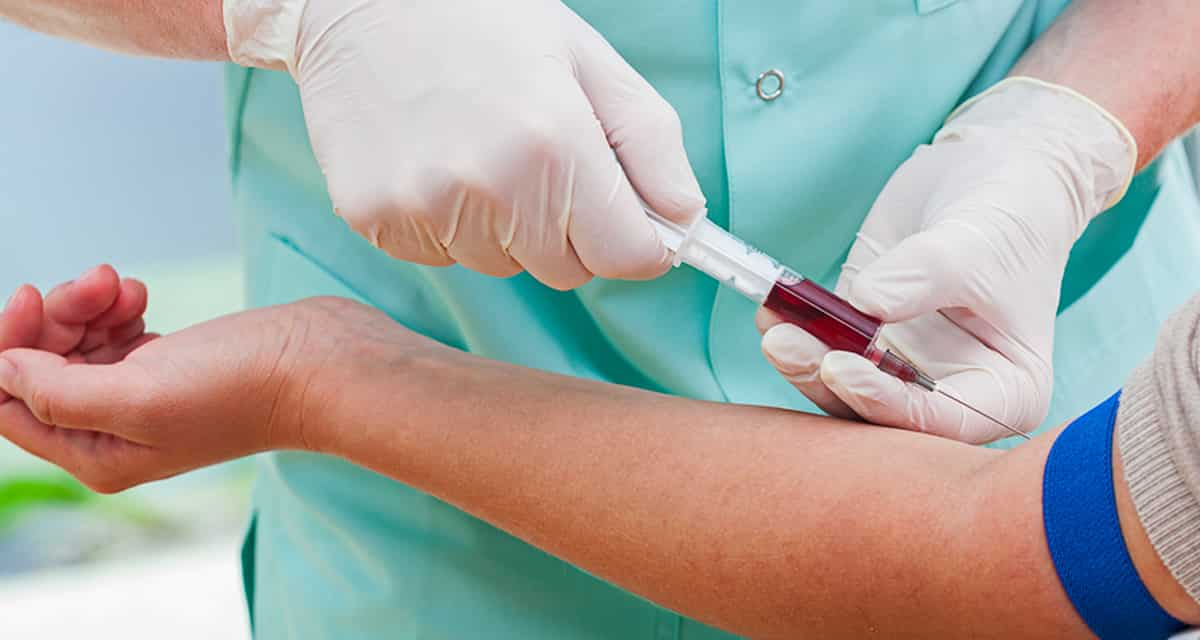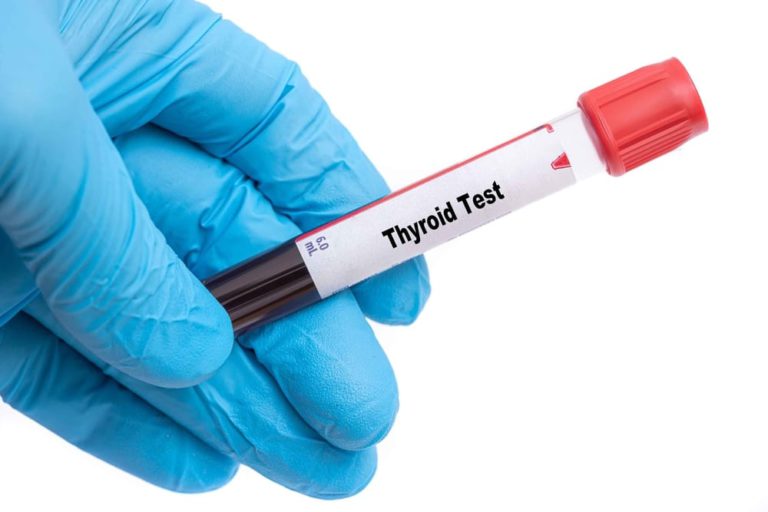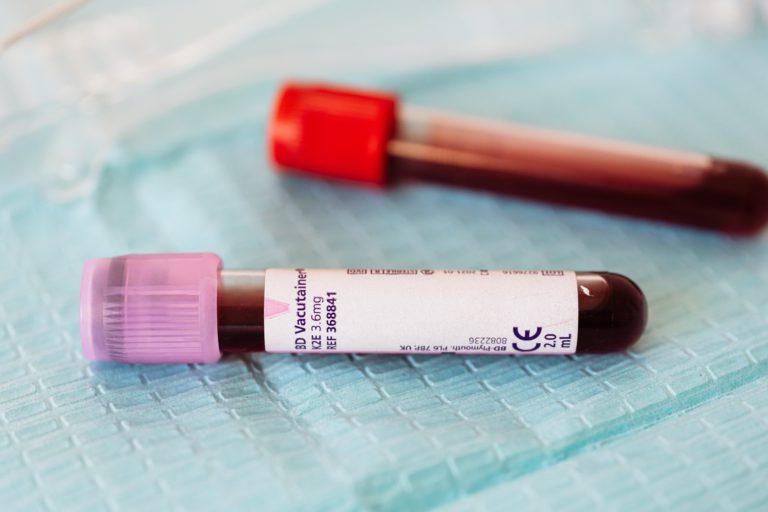
C-Reactive Protein (CRP) has emerged as a valuable marker in health diagnostics, providing key insights into inflammation and potential health conditions. Found in the blood, CRP is a protein that rises in response to inflammation, making it a reliable indicator for identifying the presence of inflammation and its severity in the body. Understanding your CRP levels can be a powerful way to assess your overall health, monitor existing conditions, and prevent serious diseases.
CRP is essential because it functions as an alarm system, alerting healthcare providers to underlying issues that may not yet have clear symptoms. Elevated CRP levels can signify anything from a mild infection to more chronic and serious conditions like heart disease or autoimmune disorders. In this article, we’ll explore what CRP is, why it matters, and what your CRP levels reveal about your health.
What is a C-reactive protein (CRP) test?
A C-reactive protein (CRP) test measures the level of C-reactive protein — a protein made by your liver — in your blood. Your liver releases CRP into your bloodstream in response to inflammation.
When your body encounters an offending agent (like viruses, bacteria or toxic chemicals) or you have an injury, it activates your immune system. Your immune system sends out its first responders: inflammatory cells and cytokines.
These cells begin an inflammatory response to trap bacteria and other offending agents or start healing injured tissue. The result can be pain, swelling, bruising or redness. But inflammation also affects body systems you can’t see, such as your joints.
You normally have low levels of CRP in your blood. Moderately to severely elevated levels may be a sign of a serious infection or other inflammatory condition.
What is it used for?
A CRP test may be used to help find or monitor inflammation in acute or chronic conditions, including:
- Infections from bacteria or viruses
- Inflammatory bowel disease, disorders of the intestines that include Crohn’s disease and ulcerative colitis
- Autoimmune disorders, such as lupus, rheumatoid arthritis, and vasculitis
- Lung diseases, such as asthma
Your health care provider may use a CRP test to see if treatments for chronic inflammation are working or to make treatment decisions if you have sepsis. Sepsis is your body’s extreme response to an infection that spreads to your blood. It’s a life-threatening medical emergency.
Why do I need a CRP test?
You may need this test if you have symptoms of a bacterial infection, such as:
- Fever or chills
- Rapid heart rate
- Rapid breathing
- Nausea and vomiting
You may also need a CRP test if your provider thinks you may have a chronic condition that causes inflammation. The symptoms will depend on the condition.
If you’ve already been diagnosed with an infection or a chronic disease that causes inflammation, you may need this test to monitor your condition and treatment. CRP levels rise and fall depending on how much inflammation is in your body. If your CRP levels fall, it’s a sign that your treatment for inflammation is working or you’re healing on your own.
Why do healthcare providers perform CRP tests?
Healthcare providers typically order a C-reactive protein (CRP) test to help diagnose or rule out certain conditions, including:
- Severe bacterial infections, such as sepsis.
- Fungal infections.
- Osteomyelitis (infection of your bone).
- Inflammatory bowel disease (IBD).
- Some forms of arthritis.
- Autoimmune diseases, such as rheumatoid arthritis or lupus (systemic lupus erythematosus).
- Pelvic inflammatory disease (PID).
Providers also use CRP tests to monitor people after surgery or other invasive procedures to check for infection during their recovery period.
A CRP test alone can’t diagnose a condition or where the inflammation is in your body. Because of this, providers generally order additional tests if the CRP results show that you have inflammation.
When would I need a C-reactive protein (CRP) test?
Your healthcare provider may order a CRP test if you have symptoms of a serious bacterial infection, including:
- Fever.
- Chills.
- Rapid breathing (tachypnea).
- Rapid heart rate (tachycardia).
- Nausea and vomiting.
Your provider may also use CRP tests to monitor your treatment if you’ve already been diagnosed with an infection or a chronic inflammatory condition.
CRP levels increase and decrease depending on how much inflammation your body has. If your CRP levels go down, it’s a sign that your treatment for the inflammation is working.
Who performs a CRP test?
A healthcare provider called a phlebotomist usually performs blood draws, but any healthcare provider who is trained in drawing blood can perform this task. The samples are sent to a lab where a medical laboratory scientist prepares the samples and performs the test on machines known as analyzers.
How do I prepare for a C-reactive protein (CRP) test?
Your healthcare provider will let you know what you need to do to prepare for a CRP test, but in most cases, you won’t need to do anything special to prepare for it (such as fasting before the test).
Why CRP Levels Matter
CRP levels are vital because they reflect the body’s inflammatory status. Inflammation is a natural response, but chronic inflammation can lead to serious health issues, including cardiovascular disease, diabetes, and autoimmune disorders. Elevated CRP levels can provide early warning signs of these conditions, prompting timely intervention and treatment. Therefore, tracking CRP levels is valuable for detecting diseases and managing conditions associated with inflammation.
What Are Normal CRP Levels?
Normal CRP levels are generally low in healthy individuals, typically below 1 mg/L in standard tests. CRP levels are often classified into three ranges:
- Low CRP: Below 1 mg/L, indicating minimal or no inflammation.
- Moderate CRP: Between 1-3 mg/L, suggesting low-grade inflammation.
- High CRP: Above 3 mg/L, potentially indicating significant inflammation that may require further investigation.
It’s important to understand that CRP levels can vary due to factors such as age, lifestyle, and underlying health conditions. Regular monitoring is helpful, especially for those with risk factors for heart disease or chronic inflammatory conditions.

What happens during a CRP test?
A health care professional will take a blood sample from a vein in your arm, using a small needle. After the needle is inserted, a small amount of blood will be collected into a test tube or vial. You may feel a little sting when the needle goes in or out. This process usually takes less than five minutes.
Will I need to do anything to prepare for the test?
Some medicines may affect your results. So, tell your provider about any supplements or medicines that you take, including ibuprofen, aspirin, and other non-steroidal anti-inflammatory drugs (NSAIDS). Don’t stop taking any prescription medicines without talking with your provider first.
Are there any risks to the test?
There is very little risk to having a blood test. You may have slight pain or bruising at the spot where the needle was put in, but most symptoms go away quickly.
What do the results mean?
Your CRP test results tell you how much inflammation you have in your body. But your test results can’t tell you what’s causing the inflammation. To make a diagnosis, your provider will look at your CRP results along with the results of other tests, your symptoms, and medical history.
What should I do if my CRP level is high?
If you have elevated CRP levels, consult your healthcare provider. They may suggest further tests to determine the cause of inflammation and recommend lifestyle or medical treatments.
Can CRP levels fluctuate naturally?
Yes, CRP levels can fluctuate due to minor infections, physical activity, stress, or other temporary factors. Regular testing can help track consistent patterns over time.
How often should CRP levels be checked?
Your healthcare provider can recommend testing frequency based on your health profile. Those with chronic inflammation or high cardiovascular risk may need regular checks.
Are there any side effects to CRP testing?
CRP testing is a simple blood test with no significant side effects, making it a low-risk procedure.
Does everyone need to know their CRP levels?
While not essential for everyone, those with health conditions associated with inflammation, such as autoimmune disorders or heart disease risk, may benefit from knowing their CRP levels for early detection and proactive health management.
Conclusion
C-Reactive Protein serves as a versatile and informative marker in health diagnostics, helping reveal the presence and intensity of inflammation. Regular CRP testing can assist in identifying early health risks, from heart disease to chronic inflammatory conditions, and offers guidance for preventive or corrective action. Understanding your CRP levels allows you to stay proactive about your health, ensuring you and your healthcare provider can respond effectively to any signs of trouble.
Say Goodbye To Waiting Rooms And Long Lines. Speedy Sticks offers at-home testing.








